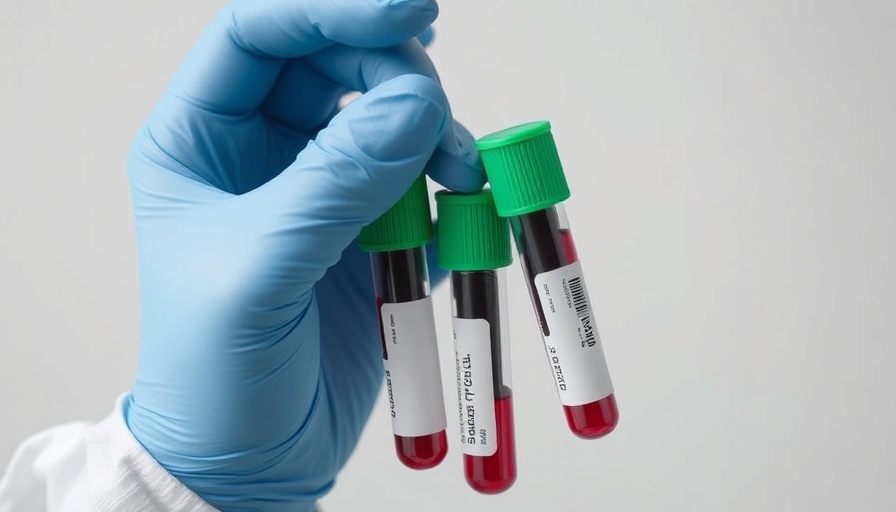
Understanding Frontotemporal Dementia: A Common Yet Overlooked Condition
Dementia is often perceived as a condition that solely afflicts the elderly. However, recent research highlights the alarming rise of frontotemporal dementia (FTD), particularly in individuals ranging from middle-aged adults of 30 to 70 years. A study conducted by UC San Francisco has uncovered significant biological markers that could help in early diagnosis and intervention, creating hope for the many at risk in this age group.
Unpacking Recent Findings: Protein Changes and Clinical Implications
The research published in Nature Aging details how researchers analyzed over 4,000 proteins from the spinal fluid of 116 individuals diagnosed with inherited FTD, comparing them against 39 healthy relatives. This innovative approach revealed changes in protein composition that disrupt RNA regulation, vital for gene expression in the brain. These disruptions may lead to the cognitive decline associated with dementia.
Why Early Diagnosis Matters
FTD is frequently misdiagnosed as depression, schizophrenia, or even Parkinson’s disease due to its diverse symptoms, including language difficulties, behavioral changes, and impairments in overall well-being. This can result in individuals receiving inappropriate treatments and support. By identifying specific proteins linked to FTD, early diagnosis may become more feasible, allowing patients access to precise treatments and clinical trials aimed at managing their condition more effectively.
The Wider Impact: Addressing Global Health Challenges
This discovery has broader implications for public health, reflecting trends in global disease outbreaks and mental health crises that the World Health Organization has been monitoring. As environmental factors and lifestyle choices contribute to health problems, understanding conditions like FTD becomes crucial in addressing the overall health landscape. The ongoing urgency surrounding comprehensive healthcare measures emphasizes the need for heightened awareness about conditions affecting younger demographics.
Healthy Living and Preventative Measures
In light of these findings, what can individuals do to empower their neural health? Adopting a lifestyle that emphasizes balanced diets rich in antioxidants, omega-3 fatty acids, and regular physical activity can bolster brain health. Engaging with mental exercises, maintaining social connections, and being aware of psychological wellness can also be beneficial. These aspects tie back to the ongoing conversation surrounding healthy living today, particularly in contexts of environmental policies and societal health factors.
Looking Ahead: What Does This Mean for Future Research?
As scientists continue to unravel the complexities of frontotemporal dementia, the focus on protein changes opens pathways for future research and targeted therapies. The implications of these studies can inform how we approach not just FTD but other neurodegenerative diseases, and the research community's commitment could cultivate a future where early diagnosis and timely intervention are standard rather than the exception.
Final Thoughts: The Importance of Awareness and Support
For those within the 30 to 70 age range, understanding the signs of frontotemporal dementia and engaging in proactive health measures can be lifesaving. Awareness fosters support—not only for those who might be affected but also for their loved ones. Staying informed and advocating for mental health initiatives will allow us to tackle the growing challenges of conditions like dementia head-on.
Take Action: Your Health Matters
Now is the time to embrace healthy living and support initiatives that spread awareness about dementia and other mental health issues. Get involved in local communities that advocate for brain health, share what you learn with friends and family, and consider your own lifestyle choices. Every positive change contributes to a healthier future not only for yourself but for society as a whole.
 Add Row
Add Row  Add
Add 




 Add Row
Add Row  Add
Add 

Write A Comment